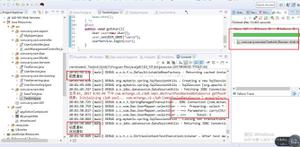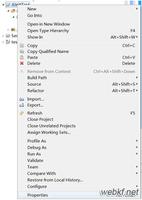junit 使用理论进行单元测试
示例
从JavaDoc
Theoriesrunner允许针对一组无限数据点的子集测试某种功能。
运行理论
import org.junit.experimental.theories.Theories;import org.junit.experimental.theories.Theory;
import org.junit.runner.RunWith;
@RunWith(Theories.class)
public class FixturesTest {
@Theory
public void theory(){
//...一些断言
}
}
带注释的方法@Theory将被TheoriesRunner视为理论。
@DataPoint批注
@RunWith(Theories.class)public class FixturesTest {
@DataPoint
public static String dataPoint1 = "str1";
@DataPoint
public static String dataPoint2 = "str2";
@DataPoint
public static int intDataPoint = 2;
@Theory
public void theoryMethod(String dataPoint, int intData){
//...一些断言
}
}
每个带有注释的字段@DataPoint将用作理论中给定类型的方法参数。在上面的示例中,theoryMethod将使用以下参数运行两次:["str1", 2] , ["str2", 2]
@DataPoints批注@RunWith(Theories.class)公共类FixturesTest {
@DataPointspublic static String[] dataPoints = new String[]{"str1", "str2"};
@DataPoints
public static int[] dataPoints = new int[]{1, 2};
@Theory
public void theoryMethod(String dataPoint, ){
//...一些断言
}
}
带有@DataPoints注释的数组中的每个元素都将用作理论中给定类型的方法参数。在上面的示例中,theoryMethod将使用以下参数运行四次:["str1", 1], ["str2", 1], ["str1", 2], ["str2", 2]
以上是 junit 使用理论进行单元测试 的全部内容, 来源链接: utcz.com/z/337892.html






